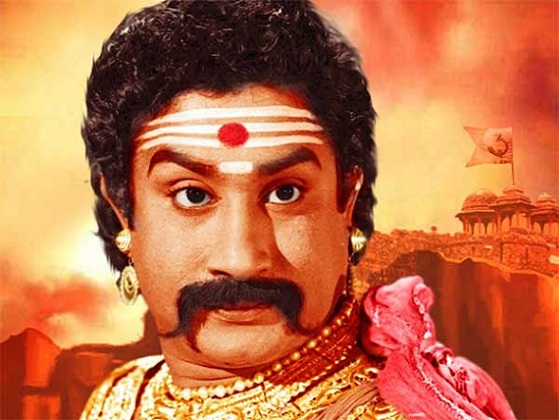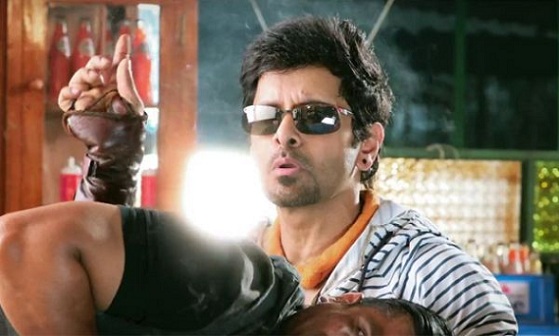By Jeeva P
It still amazes me why I was a Dad-kanni (I hate to use today’s internet lingo, but I keep doing it!) – someone who follows his dad a tad too much, observes what he observes, approves what he approves, rejects what he rejects and so on – even after reaching adulthood (But surprisingly there was another side – I was anti-dad too. For example, if my dad adored and worshipped something, I would love to poke holes in that. We will talk about that probably on some other day). Let me hasten to add that this dad-fanboyism was restricted to politics and cinema alone and not on day-to-day activities and long-term decision-making about life and relationships.
Dad had always been a cinema buff who imbibed 1960-70s era Tamil films in healthy doses regularly through cable television and YouTube, breathed TMS-Pattukottai Kalyanasundaram-MSV-TKR songs day in and day out, sneezed Karunanidhi dialogues during fits of social rage, emanated warm scents of MGR school ‘socialism’ and avuncular, moralistic do-gooderism while lecturing and playing with little children like me. Since he had very well-developed tastes in cinema thanks to these aforementioned influences, he ended up being a rigid and an unforgiving critic when it came to appreciating films of the next generation. This is not to say that he had the knack of a true art buff to divine the quality of an artistic production or had acquired the refined instincts of a proper cinema critic. Far from that, he was by his own admission, a common man out and out and all his knowledge and insights were confined to only popular mainstream cinema.

For a man of such upbringing, he had a great distaste for actors of the subsequent generation though he grudgingly admitted Rajni and Kamal into his ferociously guarded pantheon only roughly fifteen years after they had made their respective cinema debuts. To him, the greatest actor ever in the world was Sivaji Ganesan and the greatest matinee idol was the one and only MGR. Even when Rajnikanth was outdoing MGR (in my humble opinion) when it came to delivering genuine fan-boy moments (another instance of the application of today’s goddamned internet lingo! It’s becoming a habit!) during his peak, he remained only a reluctant admirer of him. And to talk about Sivaji Ganesan, he had exposed me to his so-called ‘out-of-the-world’ thesping abilities as early as my pre-teens. I had seen Thiruvilayadal, Thiruvarutchelvar, Vietnam Veedu and Karnan at least three times before I had reached the age of 15 if I remember correctly. Of course I had seen Kamal Haasan’s greatest performances in Pathinaaru Vayadhinile, Salangai Oli, Guna, Oru Kaidhiyin Diary, Anbe Sivam, etc.but the intense theatricality of Sivaji Ganesan’s performances and his astonishing variety kept him easily beyond the reach of anyone else.
***
When Anniyan released in 2005, it shook my world in so many ways. I still remember Ananda Vikatan’s review extolling my hero in adjectives I have never seen being used for anyone else – “Hats off to Vikram! Every bone, muscle and nerve of Vikram trembles and reverberates when he acts! When it comes to Remo, he is sure to enter the hearts of ladies and young women!”
I am not sure how many of today’s generation would appreciate the fact that Ananda Vikatan’s reviews were then the touchstone of a film and an actor’s quality. Many film posters in Dina Thanthi used to feature tiny snippets from Ananda Vikatan’s reviews to promote their films and I am sure at least a significant percentage of Tamil audiences were influenced by the magazine’s verdict, more so at a time when a film’s box-office fate was analyzed and labelled only after its stay in theatres for at least three or four weeks.
Personally, for a teenager in high school, Anniyan’s tremendous box-office success silenced many of my rivals – mostly Ajith fans who had to go into hiding whenever they had to face Vikram fans like me. Vijay fans always had a friendly relationship with those of Vikram and they celebrated Anniyan’s success as their own. It was a time when Ajith was suffering from a string of forgettable failures, a dark period for a star with such a massive following which would not end until Billa released in late 2007.

In addition, for the general audiences, Anniyan was simply something that they had never experienced before. Usually for an ‘elevation’ (oops! once again) scene, say for the ‘oonjal’ scene in Padayappa, audiences though they are usually unprepared for that particular moment, know instinctively or through practise, on how to respond to it the moment they land on the screen – through wolf-whistles or hoots or through wails of incredulity and delight. But for Anniyan, when Vikram effortlessly transitioned between Ambi and Anniyan specifically when Prakashraj points the gun at him inside the interrogation room, the whole theatre I was watching the film in, went blank – a deathly silence indicating thorough astonishment, an expression of embarrassing unpreparedness on how to process a sudden turn of events and react to it, a moment of stupefying spectacle akin to Tendulkar’s grand sixer off the wily Andrew Caddick in India’s 2003 World Cup league match against England. ‘What the hell did I just see! Where did that come from?’
But apart from all of these extraordinary victories, there is still one thing that I value the most from Anniyan – my dad one day while travelling in M18C from T Nagar to Nanganallur during a very rare, beautiful occasion when we both got seats to sit in a usually overcrowded bus, suddenly conceded something that completely took me by surprise – “I have seen Vikram over the years -Sethu, Kasi, Pithamagan, Saamy, Dhool and now Anniyan. What an astonishing variety! He comes very close to Sivaji Ganesan in essaying a variety of roles and it is so rare to see an actor like him. Awesome da!”
When I look back, there are only very few people in my life whose opinions matter to me the most, no matter how largely unqualified or inexperienced they are in the specific fields in question. Dad was no Baradwaj Rangan or Roger Ebert when it came to cinema and I don’t know why I had been sub-consciously expecting thumbs-ups from him even after I had entered the age where my own exposure to international cinema had given me the tools to form an independent opinion on the subject for myself. Dad had no such exposure, his tastes and judgement had ossified many decades ago and yet, I am still wondering why my sub-conscious kept deferring to him when it came to passing verdicts on films.
***
I remember reading from Malcolm Gladwell’s Outliers a few months ago that flight journeys are the safest means of travelling from one place to another, the reason being that there are over twenty checks or so before a flight is cleared for take-off. Certain stats which I don’t remember enough tell me that the percentage of accidents that happen during flight journeys are so, so infinitesimal that if you are a mathematics student, you would round it off to zero while calculating the value of a constant or proving a theorem. But despite all of that, when the flight that took off from Ahmedabad crashed a couple of weeks ago, I was very curious to know what really went wrong. I guess that we still haven’t obtained the final report from the inquiring committee and by the time it arrives, I am sure we all may have lost interest.
But a part of me when I think of the accident takes me to the flashback of Anniyan – when a set of small, unfortunate, ‘trivial by itself’ types of incidents forge a combination on a fateful day, the result could end up being calamitous on a scale that is many times larger than the impact each of which could have resulted in isolation. It is such a fabulously crafted idea for a flashback whose impact is not as hard-hitting as the one in Shankar’s Gentleman or Indian since there are no direct, conscious perpetrators in the episode and the whole idea makes sense only if you take time to understand and process it. In Rangan’s parlance, the idea comes together only in the head, ending up making only a minor appeal to the heart. But that is precisely why the flashback is so good as it answers all the questions that keep popping up in the heads of the audiences throughout the movie – why does Anniyan kill everyday people like canteen contractors, brake-shoe makers and even innocent, common citizens caught in the warps of their own existences?
P.S : Anniyan completed 20 years of its release last week.
